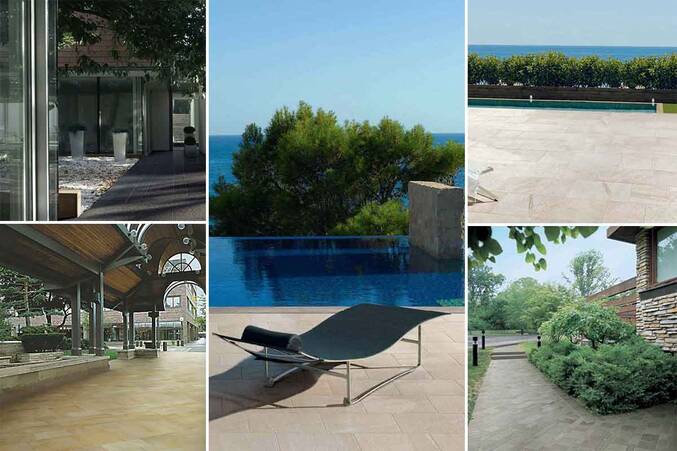Photographs: FCML Surfaces
There are several options available for residential driveways. Poonam Gupta, Director, FCML Surfaces, lists out the preferred choices along with its features and advantages.
- Stone: Granite, Kota
Advantage: Porous and stops water run-off. With time, high shade variation can be observed.
Recommended thickness: 12-20 mm
Applications: Kota can be dry- laid (block size should be small so as to reduce the point load). Granite does not have this advantage.
Installation: This is relatively expensive in comparison to tiles or concrete. - Ceramic: Full body vitrified
Recommended thickness: 16-20mm
Advantage: As the tiles are full body, it is durable and last long. Visibility of damage is low. This option is capable of withstanding atmospheric conditions for longer duration.
Variation: There is a possibility of modulations later. This option can be customized into varied shapes and patterns. - Concrete: Tiles + Pavers
Recommended thickness: 60-200 mm
Advantages: This option is preferred for larger areas and has several pattern and design options for interlocking pavers.
Cost: It is less expensive compared to the ceramic option. The production and laying cost is also less as it can be dry laid.
Limitation: Due to its porous nature, it develops cracks over time. Constant exposure to sun causes fading.
Variation: As concrete is pre-casted, no modulations can be made later. - Other options: Asphalt, Grass etc.
Asphalt: This is another option for residential driveway. Check about its advantages before you choose this option.
Grass: If going for this option, again enquire about the features that would be suitable to your preference. This in turn will help you make the right decision.


















